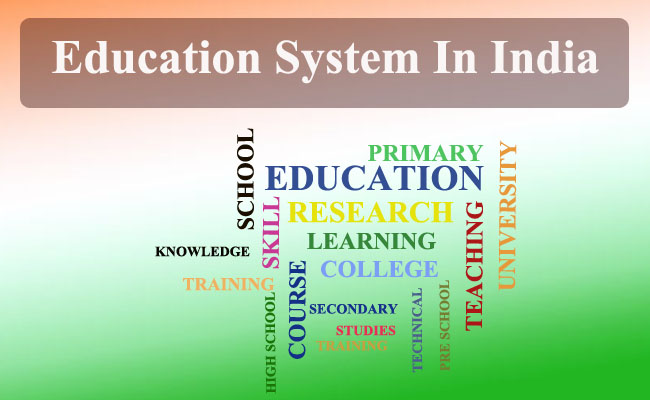Education System In India – Call For Reform

The word ‘education’ implies human progress. Our Constitution says “The State shall provide free and compulsory education to all children of the age of six to fourteen years in such manner as the State may, by law, determine.” This makes the right to education a fundamental right for children in this age group. The Indian education system has made significant progress in recent years and we should enable it to grow further.
A new fundamental duty is added making it mandatory for all parents to send their children to school when they are six to fourteen years of age, but the real picture is quite different. Our government has launched a national program ‘Sarva Shiksha Abhiyan (SSA),’ which aims to cover the entire country to provide useful and relevant elementary education for all children between six to fourteen years age group. Even after having free and compulsory education, there is still educational backwardness in India. If we observe, we would find that there are two possible causes of this backwardness.
First, is the direct cause of schooling, which imposes the substantiation burden on poor families and second is the low quality of teaching, which reduces the child’s interest in education. The schools are really in a bad state in India, especially those run by the government. Poor infrastructure, shortage of teachers, unimaginative syllabus, poor teaching methods, all contribute to the sorry state of Indian education. It is also a fact that there is an acute shortage of qualified teachers nationwide, especially in rural areas. The ability and skills of the teachers are a matter of concern. A study by the National University of Educational Planning and Administration (UNEPA) shows that almost half of elementary school teachers in India have not studied beyond twelve classes. Only one-third of those teachers, who teach first through eighth, are graduates.
Elementary school is generally viewed as a training ground for young minds. But unfortunately, because of unqualified and untrained teachers, children do not get this basic training properly. These teachers are unable to understand the peculiar needs of young children. They do not know that children’s needs, interests, and responses may differ and that they have to deal with every young child differently. For this, we need qualified and trained teachers. All those teachers, who are recruited to teach in elementary schools should receive training – both before they start teaching and on a regular basis and throughout their career. In some states, it is compulsory for a candidate to undergo a teachers’ training program, but the rule is not rigorously implemented as it ought to be.
Today, secondary education is regarded as a preparatory ground for university education. The board examination demands to cram to analysis and application. They lay stress on content by neglecting the in-depth understanding of the subject. A single examination evaluating system, a redundant syllabus unable to inspire the students are some of the main problems of secondary education in India.
After passing out of school, students are pushed into a horrible experience of seeking admission into colleges. There is no uniformity of procedure, here various considerations other than the intelligence of the students play an important role. The worst victim of the whole system is the unfortunate students, who are caught in a situation of complete chaos and confusion. Here also, the main aim of the student is to pass the university examination. For this, they are completely dependent on private tuition provided by college teachers as the classes are not taken regularly by the respective teachers. In the coaching classes, teachers only teach the answers to the probable questions from the examination point of view. So, the students are completely unaware of the total knowledge of the subject matter. This partial knowledge of a subject cannot help him in any way, except to pass the examination. Naturally, such individuals cannot contribute to the development of our society. Again, in our country, there is a wide gap between education and its marketability.
Our faulty education system cannot groom the students to get the appropriate jobs. The University Grant Commission (UGC) has directed the universities and colleges of India to have a quality assurance cell to improve the quality of education provided. By this UGC aims to provide an internal mechanism to improve the quality of higher learning.
Another target of reforms is the examination system, it is accepted by most educationists that India’s universities need to update their evaluation procedures. The annual examination has become irrelevant for testing knowledge and replacing it with continuous assessment has also been suggested by the experts. The semester system and continuous assessment and evaluation system have been introduced in all central universities.
The important measures, which are required to be taken, should be started from the primary level. Primary level education should be more creative, interesting, and practical. At the secondary and higher secondary level, a pattern of common evaluation systems may be introduced. Proper education is regarded as a necessity for the overall development of society. So it is the duty of our government to introduce a scientific modern education system, which can eliminate all the evils of our society.
“Education does not mean simply cramming up of books and passing a certain examination. As a matter of fact, a good system of education has the least number of books as it lays greater stress on practical training. The primary aim of any system of education should be to mold the character of students so as to help them face life with courage and determination. The basic education has to be adopted as the foundation on which the whole system of education is to build in the country“. Pt. Jawaharlal Nehru
Also Read: Distance Education In India






